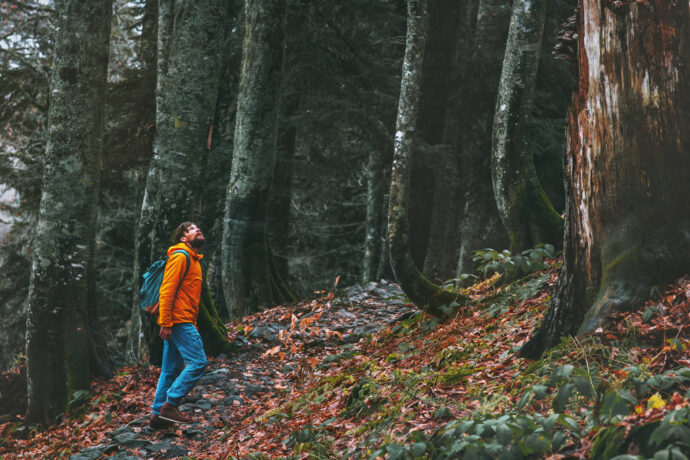Lent is a season of sacrifice and fasting. We give things up in order to draw closer to Christ. Little did we know how much we would be asked to give up this Lent.
With the rapidity of Covid-19—added to the usual Lenten fasts of coffee, chocolate, and the like—came the necessity to give up things integral to our daily lives. Sacrifice has now become a necessity for survival. Schools closed, then restaurants, then churches, and food and toilet paper disappeared from store shelves.
We have become intimately familiar with the phrases “social isolation” and “flatten the curve” to talk about how willfully surrendering to staying home will give everyone a better chance at survival in the long run.
It feels a lot like wilderness. A place we haven’t been in before, where survival is important, and there are very real dangers present. So it’s probably appropriate that, depending on where you live, this began during or extended into Lent—a season of forty days that is based on Jesus’s forty days in the wilderness. He went out into the wilderness, fasting from food and water as a time of preparation for the hard journey of ministry ahead. While in the wilderness he faced many temptations: the temptation to eat and drink, the temptation to power and control, and the temptation to elevate himself at a time when he was being specifically called to humility.
We have a choice to make: we can face this wilderness with fear, anxiety, and panic, giving into these temptations to hoard, to neglect the needs of our neighbors, to elevate ourselves as more important than the vulnerable; or, we can view this wilderness as a time of preparation and growth.
These are very much the same temptations facing us in our wilderness today. We are struggling with the desire to hoard, with the temptation to control whatever we can within our power, and to try to make ourselves out to be more important than our neighbors. We have a choice to make: we can face this wilderness with fear, anxiety, and panic, giving into these temptations to hoard, to neglect the needs of our neighbors, to elevate ourselves as more important than the vulnerable; or, we can view this wilderness as a time of preparation and growth.
While there are temptations in this wilderness, there are also calls to us from the Holy Spirit. Remember, humans do not live on bread alone, so in light of the anxiety surrounding food, are there ways we can be hospitable? Are there ways we can fight the lie that there isn’t enough, and find creative ways to share with others? Remember that God so loved the world—all of us. Are there ways for us to express our love for our neighbor in humility? Not because it benefits us in any physical way but because it benefits someone else? Are there ways for us to practice the spiritual disciplines of our faith (Scripture reading, prayer, silence, solitude, serving, fasting) during this unexpected wilderness that can grow us and equip us for the many days of ministry we will have when this time of wilderness is over? The answer is a resounding YES!
So many of our faith fathers and mothers went out into the wilderness to hear a fresh word from God and to call the church to be what it was always supposed to be. This wilderness for us can be the same. We may not be able to gather together physically, but that doesn’t mean the church is closed. There are ways for us to be the church and to practice our faith here in the wilderness. We just need to have the perspective to see it and embrace it.
Let’s move forward into this season of Lent, giving up more than we ever thought or imagined, to be formed more in the ways of Jesus. Let’s lean into this place of wilderness, that we may ultimately see new growth and generosity in ways we never imagined. But let’s also move forward in hope and peace because, while we are in the wilderness now, we know the resurrection is coming. Let’s prepare and be ready to be resurrection people in all the dark and scary places of the world and the many days of ministry still to come.





0 Comments